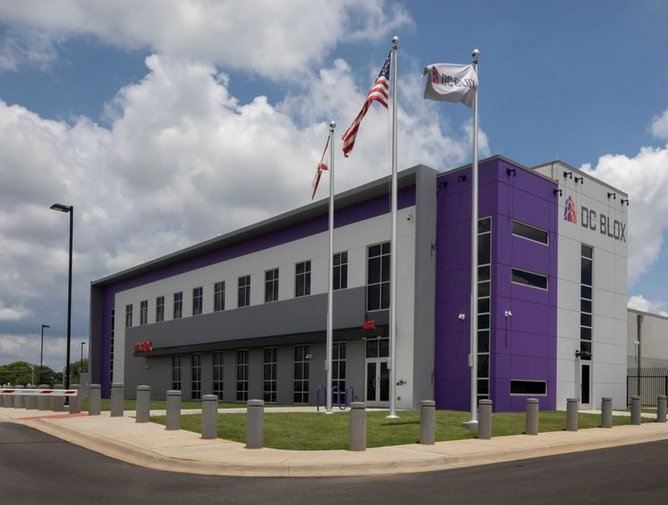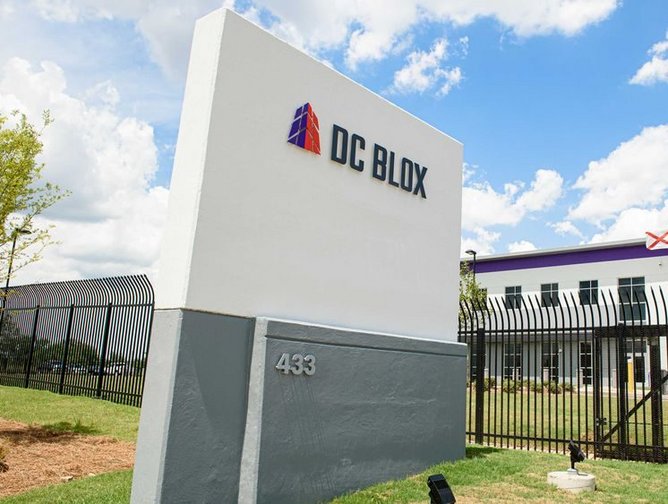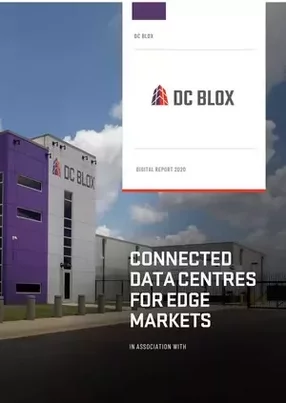Founded in 2014, DC BLOX develops core infrastructure that empowers businesses in smaller growing cities to achieve their digital transformation goals and enables local governments to accelerate economic growth by attracting technology-dependent companies and jobs to their regions.
Jeff Uphues has been the CEO at DC BLOX since 2017. He is responsible for setting and leading the company’s strategy in building and operating a fabric of edge connected, cloud-enabled data centers and driving the growth and profitability of best-in-class infrastructure for digital services. “My background has primarily been in the communications sector, both from a cloud, data center and communications perspective,” says Uphues. “I’ve got around 30 years experience of increasing responsibility across various areas of the communications sector from fiber to network services to cloud-based hosting services to data centers. It feels like I’ve come full circle.”
DC BLOX currently has four data centers: Atlanta, Georgia, Chattanooga, Tennessee, Huntsville and Birmingham, Alabama, all built with a high level of security, reliability and connectivity. Uphues believes the challenge is to find a market that is underserved while ensuring there is a demand to gain benefit. “We’re really focused on our ability to serve locally and connect globally on behalf of our customers,” explains Uphues. “We bring a Tier 3 or higher rated facility, which is the industry standard for reliable data centers, according to The Uptime Institute. When we look at these markets, we ask ourselves whether there is a Tier 3 data center already there. Would the market benefit from us delivering a service that serves them locally, is a part of that community, and connects them as we live in a global society? It’s key that there’s a value.”
Uphues affirms that his company’s data centers all have rich connectivity built-in and must be resilient in terms of its network architecture and quality of equipment. “We use premium products, driven by premium service level agreements. We engineer and operate our own private data network across the Southeastern US between our data centers and then we connect them privately to core Internet exchanges and to the public cloud providers. We really look at that connectivity and the uptime of our facilities as a key value that we bring to our markets.” Achieving DC BLOX’s high standards also requires a high standard of construction. “Beyond the connectivity, it's a question of how we build these facilities to be Tier 3-rated. It comes down to being concurrently maintainable, meaning that if any one system in the building fails, there is a backup system that can take over. It’s part of the design, it's in the materials and the type of vendors that we use. It's in the architecture for how we connect them together.”
Bill Thomson, VP, Marketing and Product Management at DC BLOX, affirms there is a significant amount of evaluation performed when deciding on the location of a data center. “We do a considerable amount of quantitative analysis of these markets. We first look for markets that have limited access to secure, reliable data center facilities. We don’t just look at the market size but also their growth potential. We look at the amount of fiber access in the markets, IP traffic, and land and power costs. These are all big indicators of potential business growth and value. We also consider state, county and city tax incentives.” Currently, Uphues’ focus is on accelerating growth in edge markets. “It's all in how you define the edge,” he explains. “DC BLOX defines the edge as where the application meets the network. And some would look at our markets as edge data center markets, while others might look at it as a hub that then connects to an edge device where that network meets the application, like a cell phone or a cell tower. We find that many people consider DC BLOX locations as edge markets outside of the larger core market areas where large hyperscale or larger data centers are located.”
As a result, DC BLOX has become that local hub where a significant amount of data traffic can pass through its facilities. “We like to think we’re the centralized place in our markets where content, carrier, cloud, wireless and network enterprise traffic passes through our data centers,” explains Uphues. “We’ve become the Grand Central Station where connectivity originates and terminates with larger markets. For example, in the state of Alabama, we have two of the most connected sites where computing, internet and cloud services traffic can be connected, managed and exchanged.” Thomson adds that although DC BLOX is building in what could be considered an edge market, it doesn’t mean that these are traditional edge data centers. “Edge data centers have lots of different meanings. We’re building a full-service multi-tenant data center built to Tier 3 standards in these markets. The business needs aren’t any different in these edge cities than the major markets, so they don’t consider themselves edge markets and are looking for the same quality of services that they could get in the major cities.”
With an eye on the future, Thomson believes it’s important to recognise that data centers aren’t what they used to be. “It's no longer just a facility decision about where my IT infrastructure needs to go. It's a strategic IT decision about who to partner with in order to provide agility and flexibility,” explains Thomson. “You need to be able to follow your digital transformation goals, you need to connect to the cloud, you need to move data to and from devices, and it's difficult to do it on your own in the old-fashioned way. A new modern, highly connected data center is an important tool and DC BLOX is a great partner for those types of relationships.” Uphues adds that the future is bright for DC BLOX and the company has a plan to continue to serve underserved markets. “Today, we have four data centers. But with the future in mind, we want more than a dozen over the next three to five years within many underserved and growing markets,” he explains. “We want to be the centralized exchange point for all cloud, content, carrier, wireless and enterprise traffic in our markets as we extend the network edge. We’re continuously seeking to expand that a bit further and really accelerate our footprint.”




- Jeff Uphues

